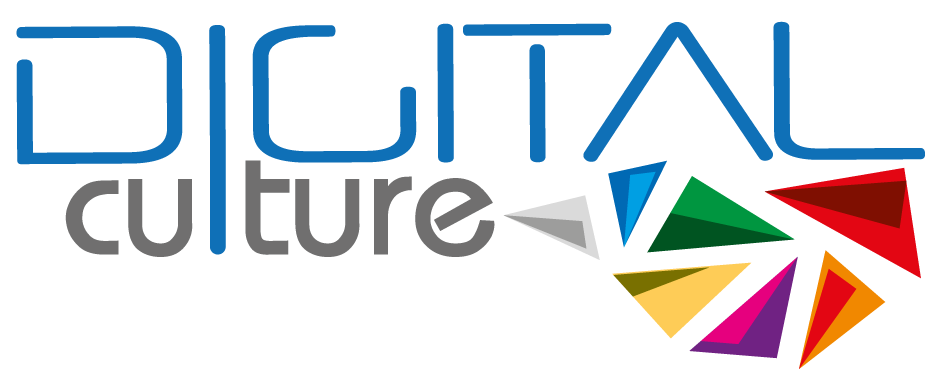O5 MOOC and blended learning Digital Skills for Culture Online Course (pilot phases)
Output 5 is dedicated to the pilot phase of the Digital Skills for Culture Online Course to be run as an online MOOC and as a blended-learning course. This is the operational phase of the project where we will run and test the course developed in O3, the Virtual Learning Hub from O2 with the e-assessment and credentials from O4, and the guidelines from O1 in all partner organisations.
Piloting is an important part of this project as this will identify if the guidelines, tools and course modules are valid for our target groups in the cultural and heritage sector, and for adult education more generally. It will also confirm that users are able to to gain the necessary digital skills and competences, and that the outputs are valid for mainstreaming in all the partner countries, in other countries, and are suitable for multiplication to other economic sectors such as tourism.
The pilot results will assess the validity and adequacy of the implementation plan, and seek to identify any unforeseen implementation problems. It will be important for it to deliver the data and information needed to convince other cultural and heritage stakeholders, who may be resistant to the use of new technologies in their sector, that improving the digital skills of adults working in culture will extend their opportunities for inclusion in the social and economic life, and will foster the development of their social, civic, media-literacy and critical-thinking skills.
Piloting the Digital Skills for Culture Online Course and Mobile App will be done in two modes:
1 – A pilot for the Digital Skills for Culture MOOC type course, to be run online with 2000 learners from the defined target group, over a period of 6 months. In the MOOC course learners will be able to undertake and complete one of the modules, several modules or the whole course. Each module completed with the e-assessment tool will validate one or two competences and will earn the participant an Open Badge. The MOOC pilot will be run in two phases. The first pilot will be used for course content evaluation, and for the refinement of the activities and exercises to adapt them to the target group characteristics for a period of 6 months for the whole 13 modules (each module will be run for 3-6 weeks, depending on the complexity and overlapping will exist). Course refinement will be performed after the first MOOC. The second will be run simultaneously with the blended-learning course for a period of 6 months.
2 – A pilot in blended learning which will combine the Digital Skills for Culture MOOC course with three face-to-face intensive workshops where learners will be able to experiment with the new concepts, implement the knowledge gained from several modules at a more complex level, interact freely and participate in joint activities. They will able able to complete the course using the e-assessment tool and gain both an Open Badge and a formal recognition and validation of their skills, according to different partner country regulations.
Output Type: Course / curriculum – Pilot course / module
O5.1 Selecting the sample of participants
from all partner countries to participate in the Digital Skills for Culture
During several multiplication events, public information in press and online and targeted information towards the cultural and heritage sector, involving the cultural associations which are partners and associated partners of this project the partners will select 2000 participants for the MOOC course and 400 participants for the blended learning (BL) course from all partner countries including the associated partners. Each partner will concentrate on the national selection of their learners, with the exception of UPT which will also select participants from Serbia, the region near the Romanian border where NoviSad is located (ECoC2021) and from Rijeka, Croatia (ECoC2020) and to whom piloting will be offered in RO and EN.
Le tappe fondamentali sono (vedi timeline allegata):
O5.1.1. Pilot participants to Digital Skills for Culture MOOC course 1
O5.1.2. Pilot participants to Digital Skills for Culture MOOC course 2
O5.1.3 Pilot participants to Digital Skills for Culture BL course
Protagonista: UNIROMATRE
Partecipanti: tutti
O5.2 Pre-pilot E-assessment of target group
Based on the e-assessment tool for digital skills, participants’ abilities will be self-/assessed and evaluated (including their prior formal or informal learning) using the tools described at O4.1 (certificates, digital assets, e-portfolios,etc) in order to indicate the modules they need to undertake, and to be able to assess at the end of course whether their digital skills have improved or not.
Protagonista: UNIROMATRE
Partecipanti: tutti
O5.3 Piloting the Digital Skills for Culture course
The MOOC Online Pilot will be undertaken in two phases. The first will be used as an initial pilot for course evaluation and refinement for 6 months, followed by evaluation and further refinement (included in the methodology). After further validation, the Pilot phase 2 will start.
As part of the initial phase for preparing the pilot a methodology for piloting will be produced by UTRome to enable all the partners to deliver a similar qualitative pilot in their countries and respective languages. The methodology will also include support for MOOC tutors – all universities have trained tutors for MOOC delivery, but this will be reinforced for quality purposes before the first pilot and monitored during the online delivery.
Piloting online – registration, online support, monitoring the online activities of learners, motivating the learners to complete the modules, online evaluation – in phase 1 and phase 2. As each course module materials are finalised they will be released online so interested stakeholders can join the MOOC course. Each course module will be piloted online for 3-6 weeks. As there are 13 course modules some will be piloted simultaneously, but the project will take into account learners’ workloads to ensure that they are able to complete the activities.
Piloting blended-learning – this will include registration, online support, practicalities of organising the three face-to-face workshops, running the workshops, joint activities and administering complex exercises.
Le tappe fondamentali sono (vedi timeline allegata):
O5.3.1 Methodology for Piloting the Digital Skills for Culture Course
O5.3.2 Piloting the Digital Skills for Culture MOOC Course in 1 phase
O5.3.3 Piloting the Digital Skills for Culture MOOC Course in 2 phases
O5.3.4 Piloting the Digital Skills for Culture BL Course in 1 phase in each country
Protagonista: UNIROMATRE
Partecipanti: tutti
O5.4 Pilot Assessment of target group
Based on the assessment at the end of each module, the final assessment and the E-assessment tool for digital skills, participants’ final skills and abilities will be evaluated using the tools described at O4.1 and included in the course modules at O3. Each learner will receive the designated Open Badge according to his/her achievement and/or final evaluation, including their prior assessment badges. Participants in the blended-learning course will also receive formal recognition and validation of their activities (certificates) based on each university and country regulations. This project target is that at least 50% of the MOOC participants should complete at least a module and 80% of the BL group should complete the full course.
In order to validate BL and MOOC, each partner will perform their learners evaluation, after each module has been completed and then the HEI partner, for that specific country, will issue a complete certificate with final grades.
Le tappe fondamentali sono (vedi timeline allegata):
O.5.4.1. Open Badges for the entire target group (MOOC +BL)
O5.4.2. Certificate for the BL group
Protagonista: UNIROMATRE
Partecipanti: tutti


